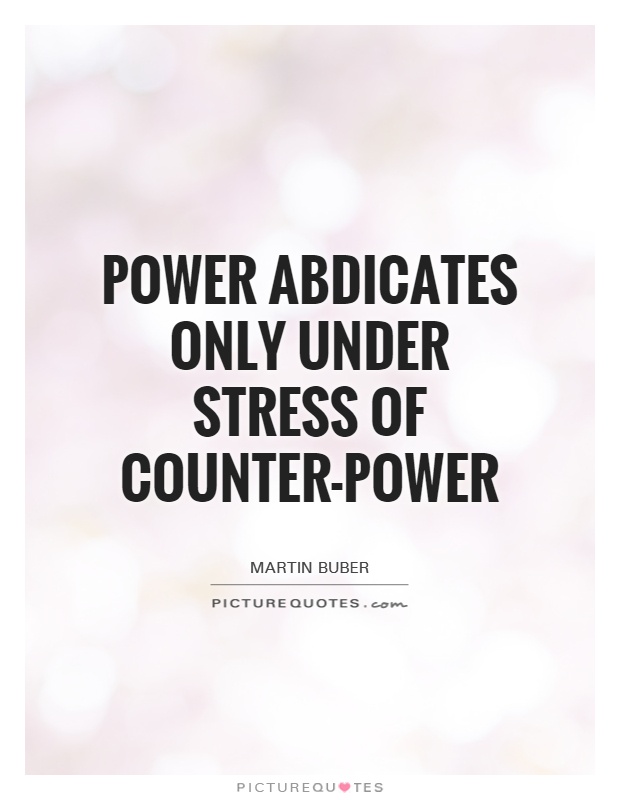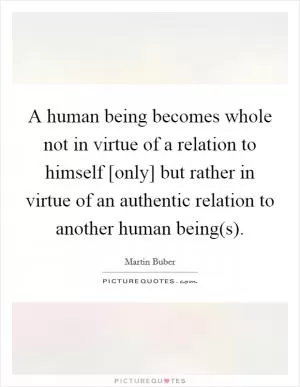Power abdicates only under stress of counter-power

Power abdicates only under stress of counter-power
Martin Buber, a prominent Jewish philosopher and theologian, believed in the power of human relationships and the importance of dialogue in fostering understanding and connection between individuals. In his work, Buber often explored the dynamics of power and how it can influence human interactions. One of his most famous quotes, "Power abdicates only under stress of counter-power," speaks to the idea that power is not easily relinquished unless there is a force pushing back against it.Buber's philosophy emphasizes the importance of mutual respect and recognition in relationships, rather than one-sided power dynamics. He believed that true connection and understanding can only be achieved through genuine dialogue and engagement with others. In this context, the idea of "counter-power" can be seen as a necessary force that challenges and disrupts the status quo, ultimately leading to a more balanced and equitable distribution of power.
Buber's concept of "I-Thou" relationships, where individuals engage with each other as unique and equal beings, highlights the importance of recognizing the humanity and dignity of others. In these relationships, power is not wielded as a tool of domination, but rather as a means of mutual empowerment and growth. When one party attempts to assert power over the other, it is only through the resistance and pushback of the other that true dialogue and understanding can be achieved.












 Friendship Quotes
Friendship Quotes Love Quotes
Love Quotes Life Quotes
Life Quotes Funny Quotes
Funny Quotes Motivational Quotes
Motivational Quotes Inspirational Quotes
Inspirational Quotes